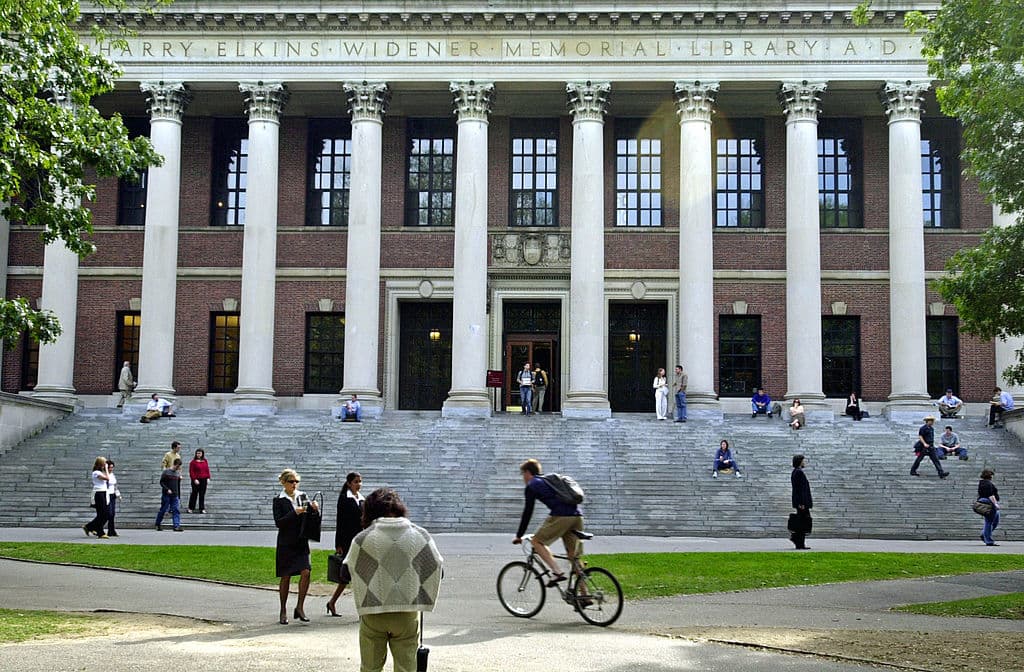Civil Rights Complaint Against Harvard Could Be Tipping Point for Ending Legacy Admissions
Banning policies favoring children of alumni would be ‘no less momentous’ than ending affirmative action.

The latest complaint against Harvard, filed with the Department of Education after the Supreme Court ruled against affirmative action, could spell doom for legacy admissions at America’s elite universities.
That is the sense of a number of educators and lawyers contacted by the Sun in the wake of the new filing against Harvard over legacy admissions. The filing was made by a group called Lawyers for Civil Rights.
LCR argues that Harvard’s higher admission rates for legacy students and relatives of donors favors white persons at the expense of minority applicants. That’s because these admission slots are reserved for a demographic that is overwhelmingly white — a practice LCR calls “exclusionary and discriminatory.”
Much as the case may have seemed like a tit for tat, issued only five days after the Supreme Court released its ruling on affirmative action, educators are debating whether it would be effective in quashing the practice of legacy admissions.
In the Harvard Crimson’s class of 2023 survey, 15 percent of respondents — 25 percent of white students, 12 percent of Hispanic and Latino students, and 10 percent of Black students — identified as legacy. A survey conducted in 2019 found that 43 percent of white students at the university were legacy, children of donors, or athletes. Yale University had similar numbers, reporting that 12 percent of students in the class of 2024 were legacy admittees.
The complaint alleges that Harvard’s admissions practices are in violation of Title VI of the 1964 Civil Rights Act. This section of the law focuses on allocation of government funding in a manner that is “aiding and abetting those who persist in practicing racial discrimination.”
Title VI is primarily directed at intentional and explicit racial discrimination, but the complaint over legacy homes in on the “disparate impact standard” of Title VI, which is applied “independent of any intent,” the Department of Justice’s Title VI manual notes. The regulation tries to mitigate any action from a federally funded entity that, even inadvertently, “perpetuates the repercussions of past discrimination.”
The Trump administration made multiple efforts to curb the power of the justice department to enforce disparate impact regulations, including through a rollback of Obama-era policies that sought to curb school disciplinary measures because of their disparate impact on minority students.
To retain the practice, a defendant must demonstrate there is a “substantial legitimate justification” for an action that results in a disparate impact — that there is not another policy that could have the same advantage without the discrepancy between racial demographics.
“The university is not violating a law if [it] can establish that there’s essentially a sufficient justification, essentially an educational necessity, for using the policy and not an alternative that they could use that would still provide the same benefit without producing that disparate impact,” a law professor at Boston University, Jonathan Feingold, says.
Mr. Feingold believes the case just filed at the education department has potential, maintaining that it would be difficult for an institution like Harvard, which has an endowment that, at nearly $50 billion, is “bigger than some countries,” to argue that these policies are essential.
Some data indicate that even the financial benefits of legacy are questionable. A 2010 book on legacy, “The Affirmative Action of the Rich,” argues that there is scant evidence to indicate a causal relationship between legacy preference and alumni donations.
Yet universities have defended the practice even as it has come under more scrutiny. A former president of Brown University, Ruth Simmons, testified in 2018 in favor of legacy admissions, according to the Crimson.
Ms. Simmons argued that universities have “been made stronger by benefit of that [alumni] involvement,” adding that “one way for us to signal how important that is to us is that we consider their children in the context of our admissions process.”
LCR is not alone in its call to end legacy admissions. Public figures from President Biden and Congresswoman Ilhan Omar of Minnesota to Senator Scott of South Carolina and a conservative political commentator, Ben Shapiro, have voiced opposition to the practice. The complaint, though, could help serve as the tipping point.
A professor of sociology at the University of Maryland, Julie Park, who studies admissions processes, asserts that, regardless of whether the complaint necessitates further legal action, the practice will likely undergo re-examination in the coming years. Ms. Park says that the likely strategy is that “more pressure,” whether through a complaint or through attempted legislation, increases “some of that momentum to end” the practice.
A former assistant secretary of education for civil rights in the Trump administration, Kenneth Marcus, is more skeptical of the “legally novel case,” saying he believes the government agency should dismiss the complaint.
Mr. Marcus notes that any new regulation that would emerge to ban legacy would be an “even greater lift” than that of the court case against affirmative action, and a decision in favor of banning legacy would be “no less momentous.”
Mr. Marcus says he suspects the ultimate decision about legacy will be in the hands of the university itself: “The only significant way this could win is if Harvard decides it wants to get rid of legacy.”

